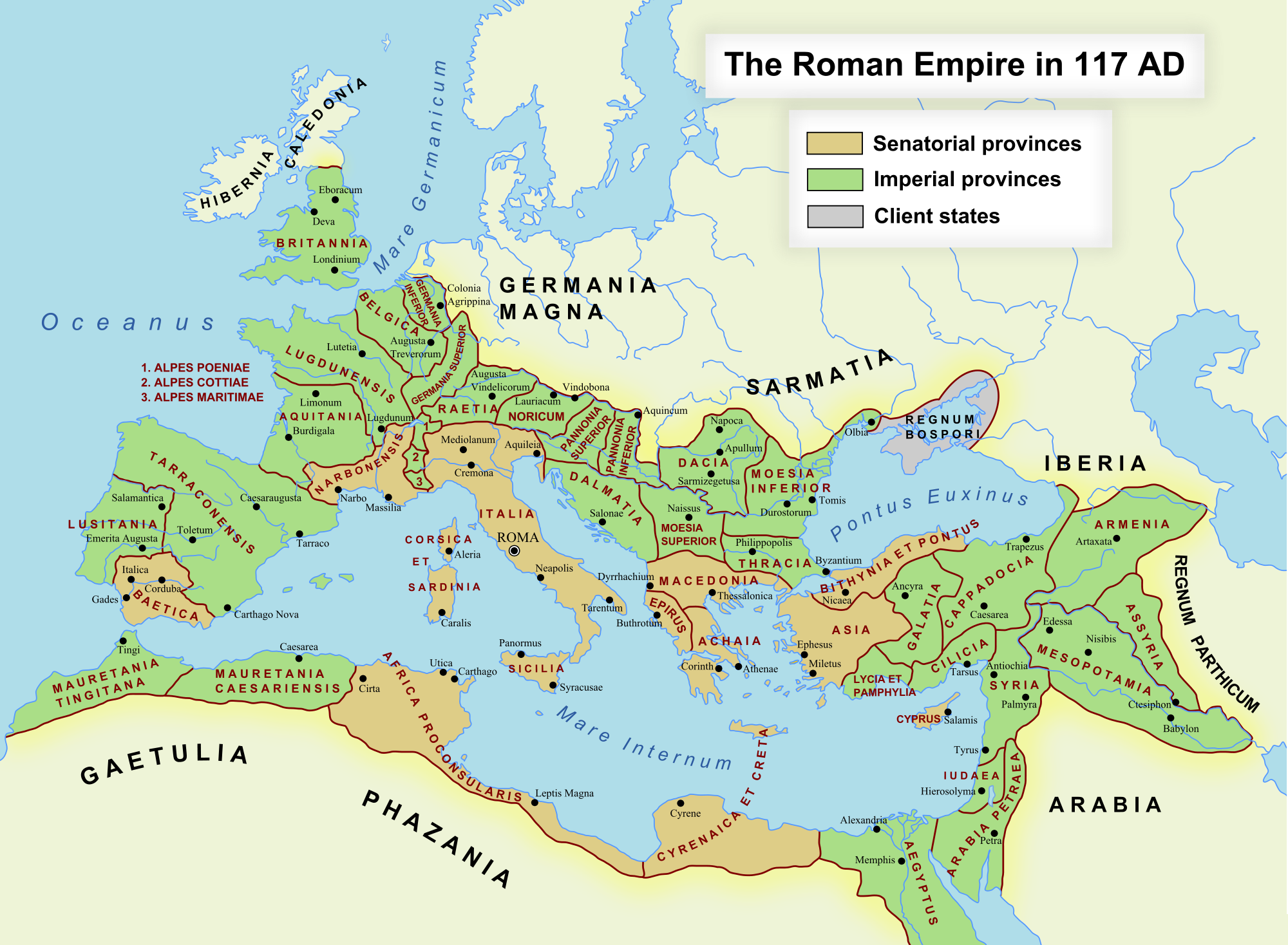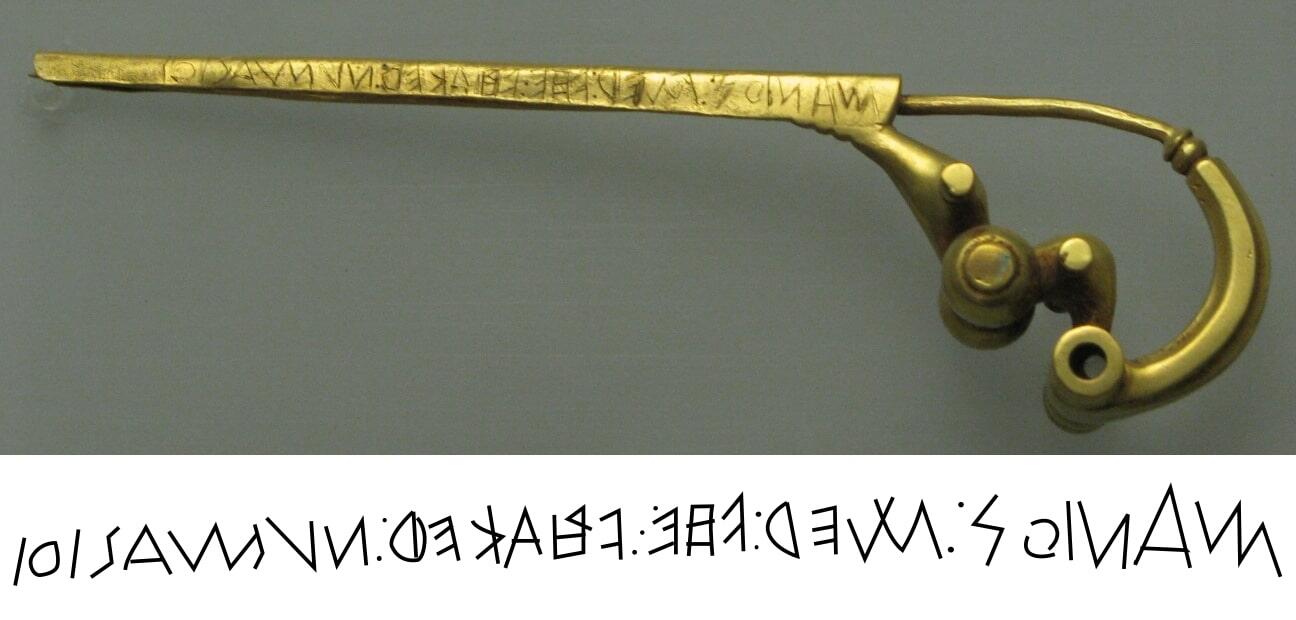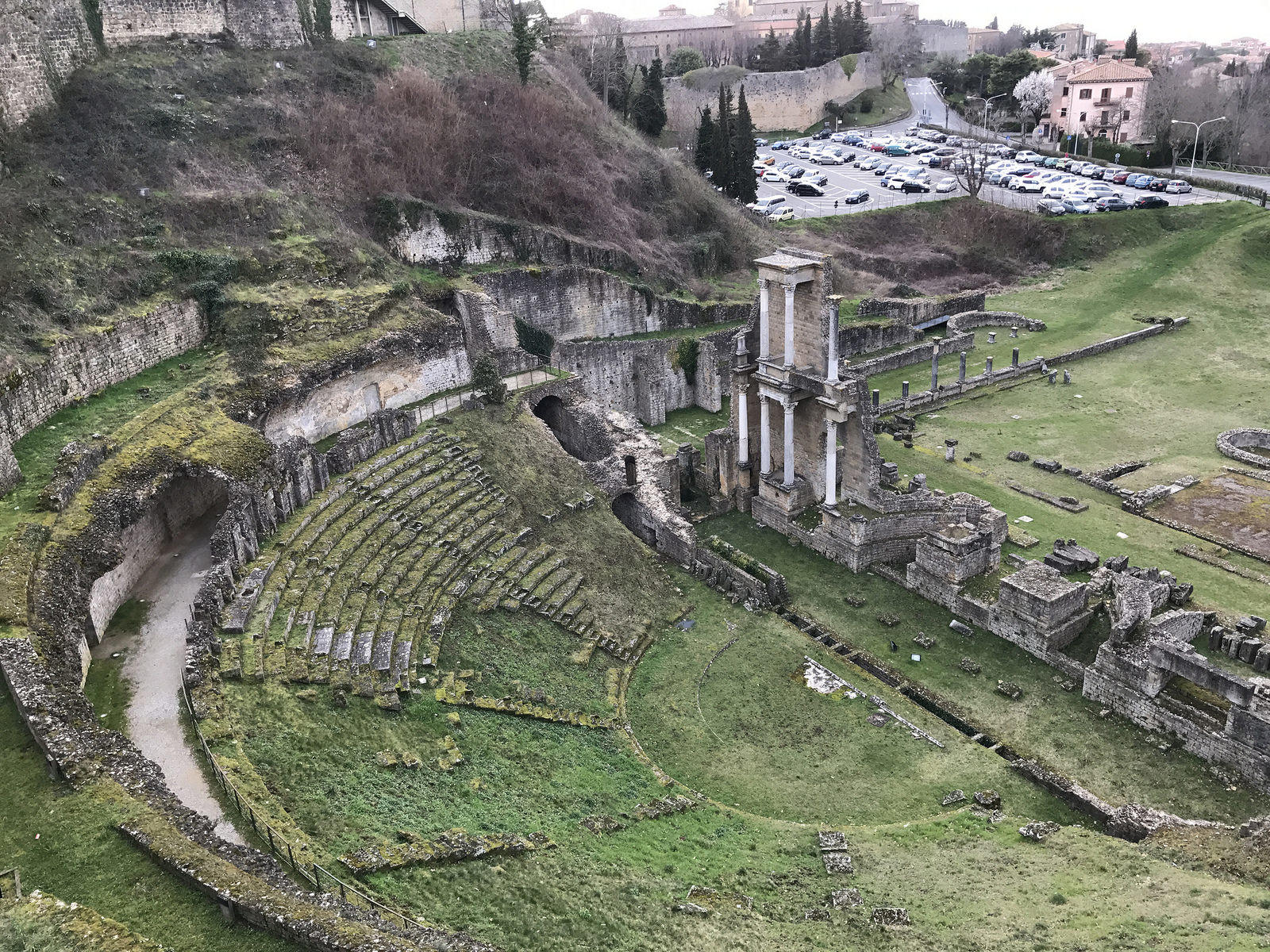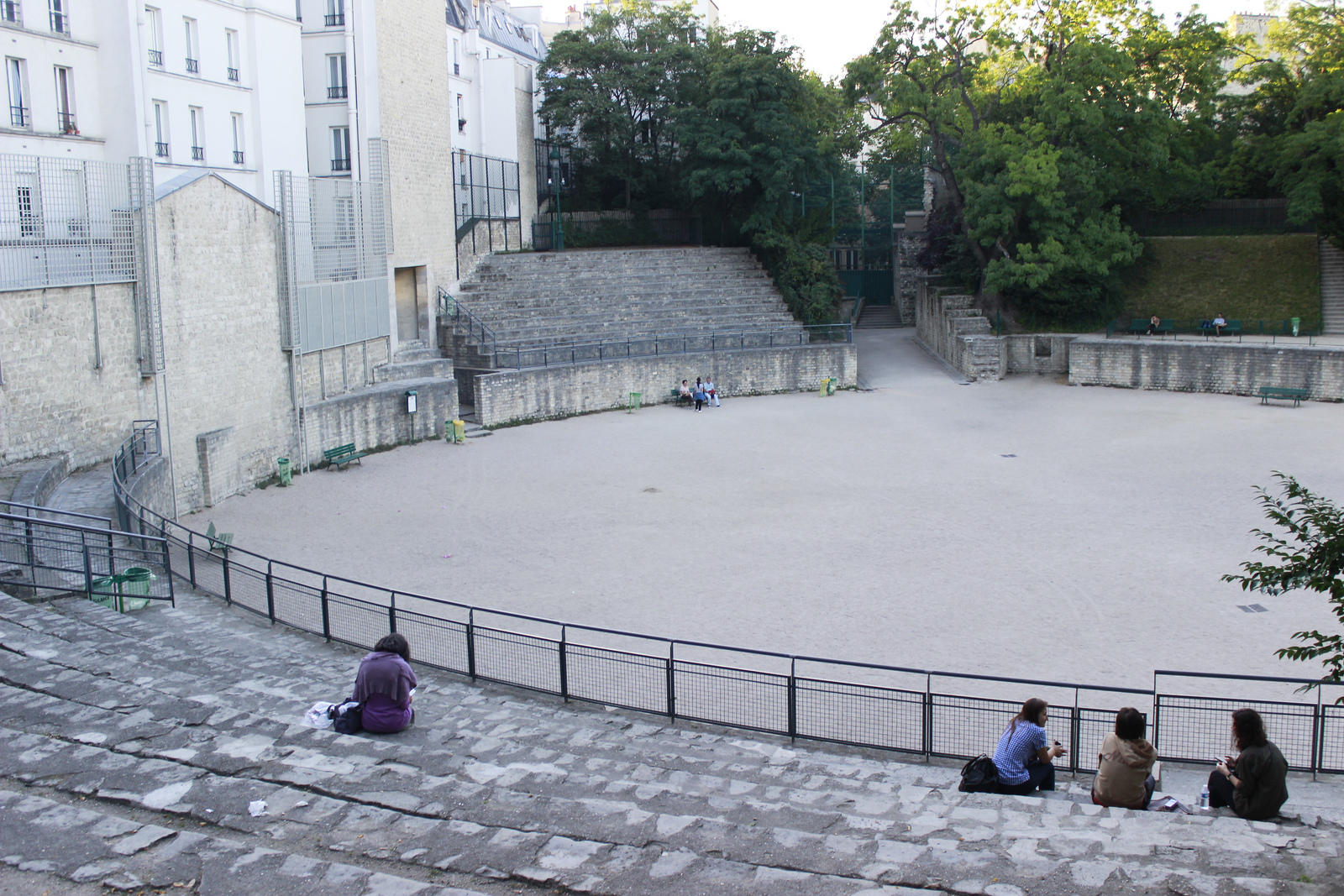The Latin language was the first language to be born in Europe, originally spoken by Latins in Latium, to have been used commonly throughout the continent. Despite Latin being a dead language today, it was undoubtedly the most common language across Europe during the hegemony of the Roman Empire. Find out about Latin language history and the evolution of this world-changing language!
and description

Background About the Roman Empire
The Roman Empire, which extended from Portugal to the banks of the Euphrates in what is today Iran, installed Latin as the official language of any newly conquered land they acquired.
The Roman Empire began in the 1st century BCE and lasted until 476 CE. Plus, the Byzantine Empire, which was a kind of extension of the Roman Empire, lasted until 1453. Clearly, the Empire had a lot of time to implement its language across its many territories.
The Empire and its language were the foundations upon which early modern civilizations were built, which is why Latin is found in so many instances as-is (like in scientific naming conventions and as a feature of prestigious organizations) and as an influence in other languages.
Officially, a language is declared extinct when the last native speakers of the said language die. For Latin, it was many centuries ago. But even though Latin is a dead language, the alphabet we use today is essentially the same alphabet as the one the Romans used.

At the Beginning Was Archaic Latin
Where did Latin originate? It is on the banks of the Tiber River, in the region of the Latium in Central Italy, that the first traces of Latin appears, in the city of Rome. It was one of many local dialects spoken by the indigenous people just like the Oscan, Umbrian, and Samnite languages. These dialects were more or less all related but all found their roots in the Greek and Etruscan languages.
The precise origins of Latin are still somewhat unclear today. The absence of a writing system from this time left very few, if any, traces at all of archaic Latin. The oldest written proof that survived through the ages is a golden brooch called the Praeneste fibula by historians and archaeologists.

Only discovered in 1887, the famous brooch was officially authenticated in 2011 by an Italian research team. The brooch displays a clear example of Old Latin. It is believed that archaic Latin evolved over the course of four or five centuries before being standardized by the Romans as their official language.
At that time, it was then used for all legal documents and functioned as the lingua franca (common language) across the Empire. From the 3rd century BC, under kings and emperors, many philosophers and orators were used to spread the Latin language, such as:
- Plautus (254BC-184BC)
- Terence (185BC-159BC)
- Cicero (106BC-43BC)
- Horace (65BC-8BC)
- Petronius (27-66AD)
Latin comes from the Latium region in Italy.
In the early archaic language, many words were borrowed from the Greeks who had several colonies in Italy, notably in Sicily. Many Greek words would eventually make their way into other romance languages, like French, but also into the English vocabulary. It is commonly acknowledged that archaic Latin ended around 100BC.
Discover also the many reasons you should study Latin...
Viewed freely, the English language is the accretion and growth of every dialect, race, and range of time, and is both the free and compacted composition of all?
Walt Whitman, American poet, essayist, journalist and humanist
The Periods ofClassical Latin
Classical Latin commonly refers to the Latin used in classical texts, written by the most famous authors like Cicero. Let's explore the time periods in which classical Latin was promenant.
The Golden Age of Latin (From 100BC to 14AD)
The declension of Latin evolved from the archaic version, and many texts were written during that era. Historians discovered many of the texts of famous authors such as:
- Julius Caesar
- Cicero
- Titus Livius
- Catullus
- Virgil
- Horace
- Ovid
- Lucretius
Prose and poetry emerged during the last decades of the Roman Empire and marked the transition from an oral tradition of Latin towards a noble literary language described as classical.

The Silver Age of Latin (14-130AD)
This period was coined as the "post-Augustus" period to refer to the end of the reign of Emperor Augustus and the beginning of the decline of Roman society, including its literature. Some of the great authors of Roman literature are:
- Seneca
- Pliny the Elder
- Petronius
- Tacitus
- Pliny the Younger
- Quintilius
This "Imperial Latin" matches with the apogee of the Roman Empire under the Emperors Nero, Domitius, and Flavius, a period which was characterized by the development of rhetoric art. The influence of Greek stoicism led to the importance of religion and Gods to decline in Rome.
Late Latin
From the 2nd to the 8th century AD, many successive barbaric invasions provoked the fall of the Roman Empire and the collapse of the political and administrative institutions that were holding all the provinces under Roman control.
At that time, Latin went through profound changes, as it was no longer the official language of the state, or rather, the state could not enforce it. Even though the Eastern Roman Empire, later known as the Byzantine Empire, kept its border until the fall of Constantinopolis in 1453, Greek had always been its official language.

During the centuries that followed the reign of the last Roman Emperor, Latin got mixed with local dialects. Linguists refer to the non-standard form of Latin that developed around the Mediterranean region after the Classical Period as Vulgar Latin. It is from Vulgar Latin that the Romance languages evolved: Italian, Spanish, Portuguese, Romanian, and French. This form of Latin was closer to the Sermo plebeius (common speech) used by the everyday citizens of the Roman Empire and amongst them the legionaries that conquered most of Europe.
In some places, Latin would remain the prevalent common language. In France, Spain, and Italy, many local dialects disappeared in favor of Latin. In England, Latin was replaced by Old English under the influence of the Anglo-Saxon invaders and historians believe that Latin was no longer in use as early as the 6th century AD.

Latin, Ancestor of the Italian Languages
Where did the Latin language come from? Latin, the vehicular language of the Roman Empire, was born in the Latium, a region in central Italy. The Roman civilization rose thanks to its incredible capacity to learn and imitate the techniques and knowledge originating from other regions in the Italian peninsula, notably from the Etruscans.
When the Romans imposed Latin as the universal language of the Empire, many italic languages were still spoken in Italy, such as Oscan, Umbrian, Volscian, Marsian, Sabine, South Picene, and more. The dominium of the Roman Empire generated a Latinization of the Italian peninsula and many of those dialects stopped being used while others survived.
Many consider Latin to be a dead language because it's not used for communication anymore. However, many words in daily life are directly from Latin, especially in science, law, and medicine. For example, legal terms like "habeas corpus" and names for body parts.
The Italian language belongs to the Italo-Dalmatian language family which also includes Sardinian, Tuscan, Venetian, Istian, Calabrese, Sicilian, and Corsican. All of the Italic languages have roots in Greek (Greeks had many colonies in Italy), but most of their origins come from Latin.
Many of the dialects mentioned above still survive today and are classified as Romance languages. While the official language of Italy was only set when the country unified in 1861, many other Italian dialects have a consequential number of native speakers.
The Main Western Romance Languages
The 3 main Romance languages that survived in Western Europe are French, Spanish, and Portuguese.
French
Gaul was invaded and conquered by Julius Caesar, (100-44BC). Consequently, the French language, like any of the other Romance languages, evolved from Latin while assimilating words from the Gaulish, Frankish, and Germanic languages.
Even though the French language was standardized as early as the 16th century, three major romance dialects coexisted in France. The Oïl language in the North, the Oc language in the South, and the Franco-Provencal language in the Southeast of France, the North of Italy, and Switzerland.

The Oïl language includes many dialects:
- Berrichon
- Bourguignon
- Morvandiau
- Champenois or Campanois
- Franc-Comtois
- French
- Lorrain
- Norman
- Picard
- Poitevin and Saintongeais
- Walloon
- Angevin
- Manceau
- Mayennais
Many of these dialects are almost dead and only have a handful of native speakers.
The Occitan language includes other idioms originating from Latin and is mostly spoken in the Southern Tier of France, the region once called Occitanie. It includes:
- Gascon: includes Béarnese and Aranese (spoken in Spain)
- Languedocien
- Limousin
- Auvergnat
- Provençal, including the Niçard subdialect.
- Shuadit
- Vivaro-Alpine, also known as "Alpine" or "Alpine Provençal"
The Occitan language is the most-spoken regional language in France and still counted around 800,000 native speakers in 2012.
Although English is a Germanic language, it takes a lot of words from Latin. About 60% of the English vocabulary comes from Latin due to the influence of the French Normans.
Spanish and Portuguese
The Iberian Peninsula was conquered by the Romans in 228BC. There, vulgar Latin that emerged after Roman colonization gave way to many other dialects with Latin origins:
- Castillan
- Catalan
- Andalusian
- Extremaduran
- Murcian
- Aragonese
- Galician
- Portuguese
Castillan (the official language of Spain) was greatly influenced by 700 years of cohabitation with Arabic languages. Catalan, which is spoken in Catalonia (region of Barcelona) is derived from the French Occitan language and is often easier for French-speaking people to understand.
In Portugal and Spain, the Latinization process was fairly swift according to historians. The huge number of soldiers and civil servants that the Roman Empire dispatched to the newly conquered territories of Iberia seems to have been the main factor for this. Latin easily took over the local dialects and the indigenous population, generation after generation, slowly forgot their native languages (Celtic, Iberian, Leonese, Cantabrian, Vascones).
Some dialects successfully survived the Roman Empire. The Basque language still spoken today in both France and Spain in the region of the Pyrenees is not part of the Romance language since its grammar doesn't come from Latin.

From Medieval Latin to the Renaissance Latin
A long period of shift in the Latin language occurred from the Early Middle Ages up until the Renaissance Period. Latin was the common language used for any literature throughout Western Europe. The Church was the main body responsible for the conversation of Latin as the language of the lettered people.
The nobility and clergy of the time were all taught in Latin. During that period, a massive amount of liturgic texts was written or copied but the clerical literature slowly opened up to the scansion of ancient texts.
In 800AD, Charlemagne, then Emperor of most of Western Europe (including current France, Belgium, Switzerland, Northern Italy, and Western Germany) decided to reform Latin. The syntax was simplified and many neologisms were incorporated into the Latin language.
After centuries of Christian obscurantism in Europe, came a new age: art, reason, and science took over religion. It was the Renaissance. The movement that started in Italy at the end of the 13th century only reached England late in the 15th century.
After Dante popularized the Italian language over Latin in Italy, Chaucer did the same with Middle English in England. Until then only Latin had been used to write books. But Chaucer was instrumental in popularizing English as a medium of literary composition.
Latin was still the scientific language of choice by scholars and academics all across Europe.
Many of the philosophers and scientists of the time kept using Latin to write their books. Francis Bacon (1596-1650) and Isaac Newton (1643-1727) are probably the most famous English examples.
From Neo-Latin to Contemporary Latin
Still today, Latin remains one of the official languages of Vatican City and The Catholic Church. Linguists use the term "neo-Latin" to refer to the Latin idiom in use since the Italian Renaissance. Around the time when the Eastern Roman Empire (Byzantine Empire) fell, Gutenberg invented the printing press in Germany and helped to spread Latin texts more easily thanks to the mass printing of Latin works.
However, from the 18th century, Latin was only used for scientific texts and some Latin poetry. This explains why at least 90% of scientific words in English come from Latin. Nowadays, debate still happens on whether Latin should still be taught in schools or not; it's not a living language, but knowing Latin can help people understand all the other languages still connected to it today.
If you are interested in learning Latin and wondering more about the origin of Latin language, why not teach yourself or find a private tutor with the help of Superprof?
Summarize with AI:
















Thanks for all the useful information!!! I used this website for my researches and went through well. :)